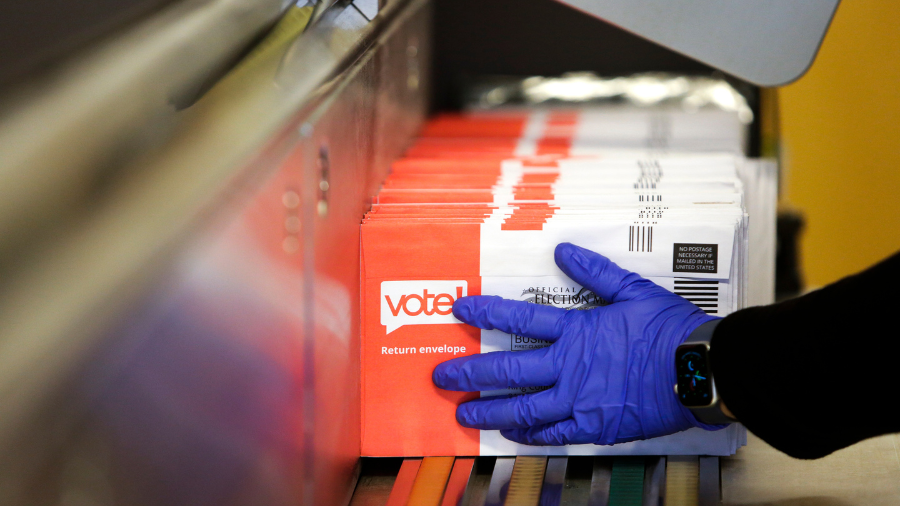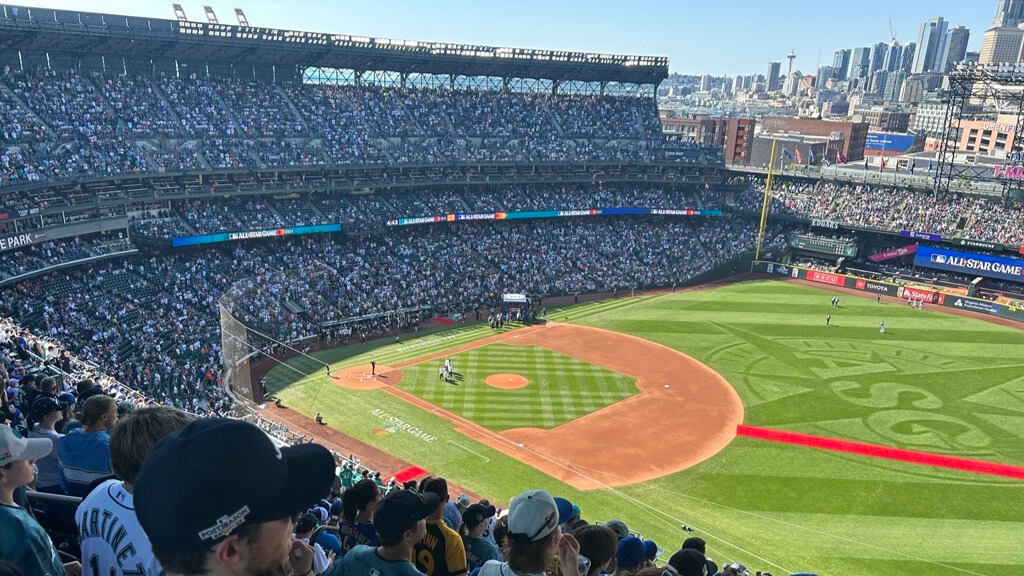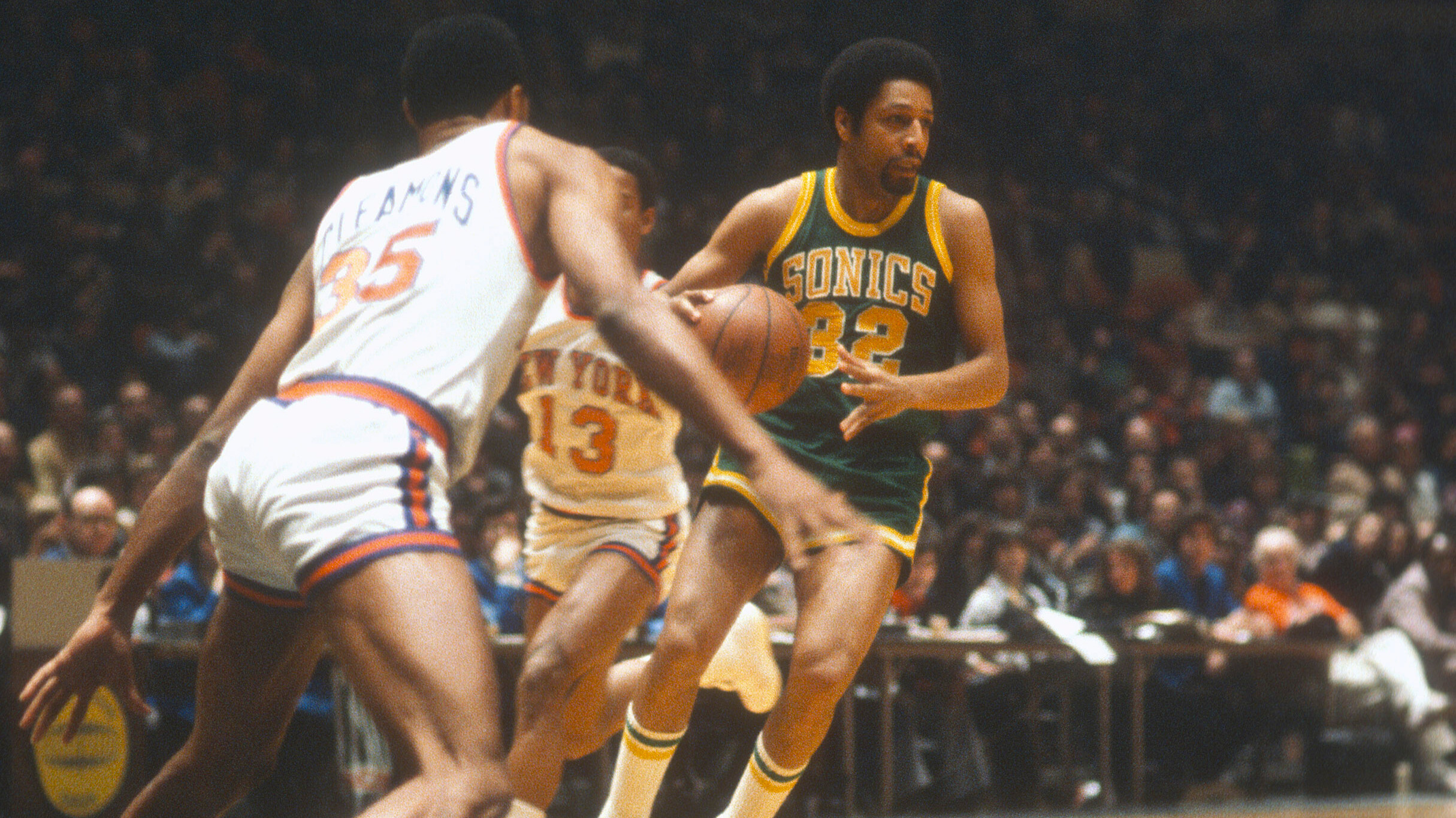Opinion: Seattle can’t arrest its way out of more shootings
Jan 24, 2020, 12:39 PM | Updated: 4:38 pm

The scene from a shooting in downtown Seattle at the end of January. (Getty Images)
(Getty Images)
Seattle is still reeling from a Wednesday night shooting in the downtown core, and community members, law enforcement, and politicians are all scrambling for solutions.
Community calls for ‘immediate action’ in wake of Seattle shooting
Regional leaders say we need more gun control. Others say that two suspects — William Tolliver and Marquise Tolbert — with dozens of previous arrests between them should have been in jail long ago. What everyone seems to agree on is that we need to do something, and given the suspects’ rap sheets, that’s tough to argue.
Tolliver’s record includes at least 44 arrests dating back since 2014, with 20 convictions, one of which was for a Class C felony. Tolbert has 21 arrests since 2011, with 15 convictions and a pair of felonies to boot (a Class C and a Class B respectively).
No one disputes the fact that either of these men shouldn’t have been cycling in and out of the justice system in near perpetuity for the last 5 to 7 years; where people start to differ is with how we should be addressing that problem.
On one end of the spectrum, there are advocates for harsher penalties — they argue that at some point in Tolliver and Tolbert’s criminal history, a judge should have sent them to prison for lengthier sentences. Both have been behind bars over the years, but never for much more than a year at a time.
That being so, let’s take the “lock them up and throw away the key” argument to its logical conclusion. Instead of a year behind bars, let’s say Tolbert served the maximum 10-year sentence for his Class B felony.
At some point after that sentence, he would need to reenter society. After a decade in prison, he’d immediately encounter problems finding gainful employment, since having a felony on your record makes it roughly 50 percent more difficult to get hired. And despite Washington’s own restrictions on asking prospective employees about their conviction history, companies can still legally uncover that information during the hiring process.
After 10 years in prison with little to no job prospects, that leaves a former inmate without the means for a stable income. That poses an existential threat to his ability to eat, afford housing, or in some cases, raise children. Having scored that hypothetical 10-year conviction in his late-teens/early-20s, data shows us that path often leads directly back into prison.
Seattle Police Chief: Fatal shooting in Seattle ‘unacceptable’
The alternative argument is for three-strikes sentencing guidelines, akin to what many states (including Washington) have had in place in various forms since the 1990s. That means after three serious felonies — the definition of which varies from state to state — you’re behind bars for life. The problem there is that data going all the way back to the 90s shows that three-strikes laws have little to no direct effect on reducing crime, while disproportionately targeting minority groups.
So, what can we do?
To start, expanding services to actually rehabilitate repeat offenders would be a solid first step, rather than just arresting them, sticking them in prison for a year, and then releasing them back out onto the streets without a second thought. That would require that diversionary programs are fully staffed, well-funded, and are made available anyone who finds themselves caught in a never-ending cycle of recidivism.
Seattle’s own LEAD diversion program was designed to tackle that to an extent, but is currently facing collapse due to a lack of funding. It was supposed to expand citywide but hasn’t been able to, with the program operating at capacity for years now. Case managers are meant to handle about 20-25 clients. In 2019, they were handling about double that number toward the end of the year — an average of 44, according to LEAD program manager Lisa Daugaard.
Things aren’t looking much better for LEAD in 2020, either, with Seattle Mayor Jenny Durkan withholding crucial funding for the program that was originally approved by City Council. According to a report from C is for Crank’s Erica Barnett, that could soon force LEAD to halt its plans for expansion and begin laying off staff.
With LEAD nearly on life support, it’s no wonder we have a revolving door of repeat offenders. That all makes one thing obvious: What we’re doing right now isn’t working, full stop. And if arresting criminals was truly a solution, odds are the cycle would have ended somewhere on the way to over 40 arrests for William Tolliver.
Simply put, we can’t throw people in prison today without helping them stay out of prison tomorrow.












